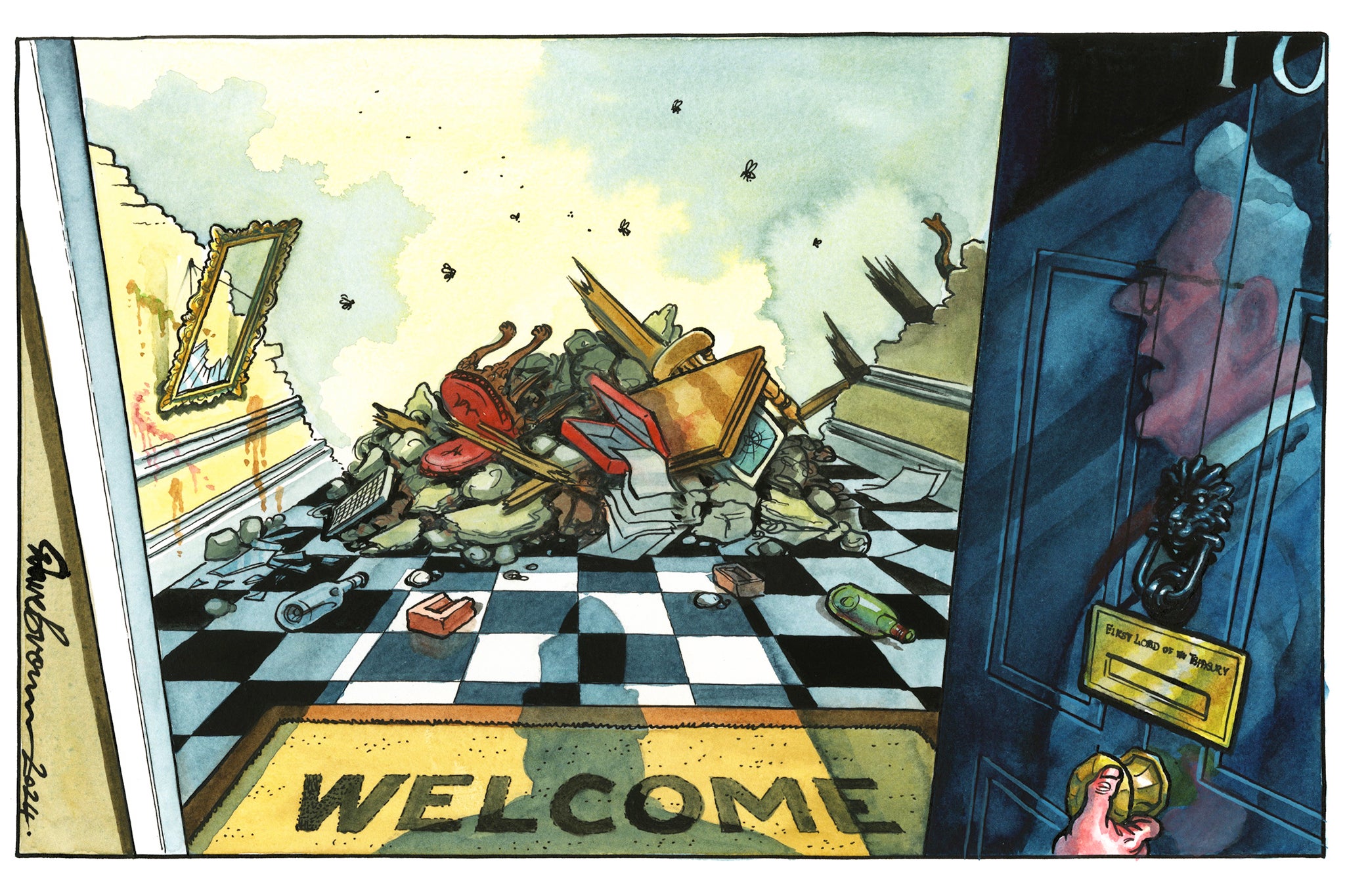Starmer had plenty of ambition in his first speech as PM – but the next few years will be hard going
Editorial: Sir Keir Starmer promised change and he seems to mean it, but he needs a strong team around him to navigate the challenges to come

Sir Keir Starmer has often been criticised, by both friends and enemies, for his innate caution, but in his first address to the nation as prime minister, there was plenty of ambition. He promised “change”, and it seems he meant it. After 14 years of Tory rule, he has become the first Labour prime minister since Tony Blair to take his party into power directly from opposition.
Sir Keir understands better than most the crucial importance of listening to the public on the arduous journey back to government, and then striving to meet their aspirations once in office. It is one of the fundamentals of politics that the Conservatives carelessly forgot during their last years – which accounts for their rejection by the voters.
Whether the Tories have much chance of regaining their political touch remains to be seen, but Sir Keir is acutely aware of what needs to be done. He spoke about getting “our NHS back on its feet”; of “secure borders”; of “cutting energy bills for good” via clean power; of “safer streets”; and of building “brick by brick ... world-class schools and colleges” and “affordable homes”.
Quite the agenda, but it is one that the public, rather than party activists or vested interests, have set for him, and Sir Keir has adopted it with relish because he believes in it. If nothing else, these are the essential components of electoral success in the coming years; as the changed Labour Party knows, it has been given the chance to serve in part because of the abject failure of the Conservatives. If Sir Keir and his team are planning for their first term to serve as the gateway to a second term, and the “decade of renewal” they have spoken of, then this early mission statement shows their intent in earnest.
Sir Keir, to indulge in some Dickensian allusions, told the country he had great expectations, but tempered his speech with a degree of candour about the plight of the country, which was more “bleak house”. In his characteristic unshowy and fundamentally honest way, he also sought to strike an unspoken contrast with the rascally Boris Johnson, the Martin Chuzzlewit of British public life.
Yet Sir Keir, like any prime minister, needs a strong team around him, and the new shadow cabinet should prove a more united, energetic and cohesive group than that which came immediately before it. By the time the Tories staggered to their denouement on Thursday evening, they were plainly short of talent as well as ideas. The new ministers give the impression that they can’t wait to get started and make good on their manifesto promises.
Rachel Reeves is the first female chancellor ever, and, as she reminded us, her presence in that role should show “every young girl and woman that there should be no limits on your ambitions”. She and the prime minister have made clear that their aim is to boost economic growth, and, contrary to Tory jibes, she does have a plan for how to do it, starting with stabilising the public finances.
Angela Rayner, the subject of so much unforgivably snobby treatment, has the great advantage as a minister of knowing what she wants, and the drive to get it. As deputy prime minister and secretary of state for housing and levelling up, she has the makings of a powerhouse within government.
During the election campaign, as well as the time spent in their shadow roles, Bridget Phillipson (education), Wes Streeting (health) and Liz Kendall have shown that they are prepared to take the tough decisions necessary to ensure that our public services and social security systems are made both efficient and financially sustainable – indeed, it is not possible for them to be one of these things without the other.
The one thing that can be said with some certainty is that post-Brexit Britain is going to find the next few years hard going. In an ideal world, turning the clock back and cancelling Brexit would be the quickest way to boost growth, living standards and public services – but the Labour manifesto didn’t say anything about inventing a time machine. Politically, building a closer relationship with the European Union will take time, hard work, and delicate political judgement.
For now, the immediate tasks facing the prime minister and his colleagues will absorb all of their energies and imagination. There will be crises, and there will be unpopularity, and the rise of Reform and the Greens will pose fresh challenges to ministers trying to win the argument, carry the day and deliver their pledges. They will need to be loyal to one another, straight with the people, and single-minded in their pursuit of delivery. We wish them well.
Join our commenting forum
Join thought-provoking conversations, follow other Independent readers and see their replies
Comments
Bookmark popover
Removed from bookmarks